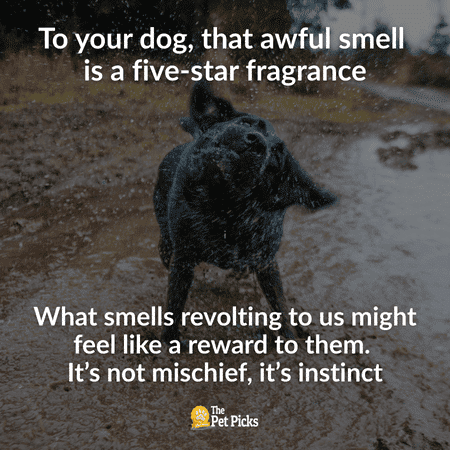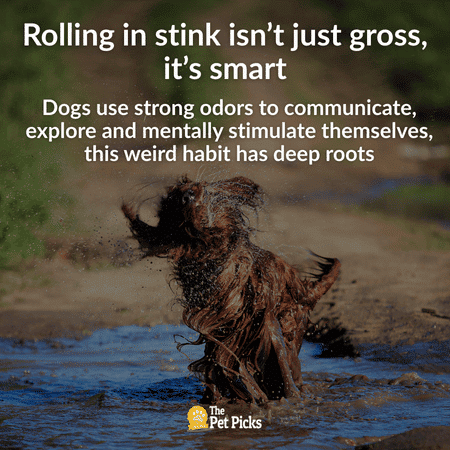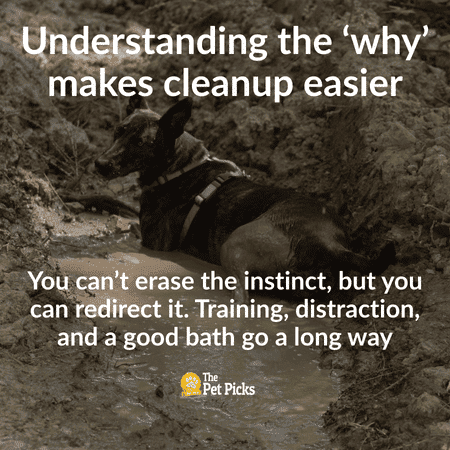Sniff First, Ask Later: Why This Behavior Matters
You just bathed your dog. Their fur is soft, they smell like lavender, and you’re feeling proud. Then, five minutes into the walk, they find something rotten in the grass and gleefully roll in it. You stand there horrified, asking yourself the same question every dog owner eventually does: Why on earth do dogs love smelly things?
The answer is equal parts science, instinct, and doggie delight. While it might seem gross to us, this behavior has deep roots in your dog’s evolutionary past and plays a role in communication, instinct, and even mental stimulation. Understanding it can not only reduce frustration but help you better connect with your furry family member.
Ancestral Secrets: What Wolves Taught Our Dogs About Smell
Before dogs became our couch-sharing companions, they were wild animals. In fact, many of their behaviors today trace back to their wolf ancestors, including the odd obsession with pungent odors.
Wolves have been observed rolling in animal carcasses and droppings. The reason? To carry the scent back to the pack. It’s thought to be a form of communication, a way to share information about what they’ve encountered, whether it’s a new animal, potential food source, or a territorial marker from another group.
So when your dog rolls in a dead squirrel or some unidentified mess in the park, they may be trying to share that experience with their “pack”, you. In their eyes, they’re not being naughty. They’re being helpful.

Camouflage Mode: Hiding in Plain Smell
Another theory links smelly rolling to hunting instincts. In the wild, strong smells can help mask an animal’s own scent. By rolling in other odors, predators may get closer to their prey without being noticed.
While your dog might not be hunting anything more serious than a ball or a snack, this instinct still lingers. Some experts believe it’s a leftover behavior with no modern purpose, much like a reflex. Others suggest it still provides dogs with a sense of security or excitement.
Either way, that awful-smelling mud puddle may make your dog feel like a stealthy hunter, even if they end up back in your bathtub an hour later.
Dog-to-Dog Messaging: Scents as Social Media
Dogs rely heavily on scent for communication. They learn about each other through smell more than sight or sound. Every sniff at the park is like reading the news or scrolling through a feed.
When dogs roll in strong smells, it could be their way of broadcasting a message. Instead of just smelling something, they want to be the thing that smells. They might be saying, “Look what I found!” or “I’ve been here!” to the next dog who crosses their path.
Think of it as canine cologne, but far less Chanel and far more compost.

Boredom, Fun, and Attention: It's Not Always Instinct
Sometimes the explanation is simpler: dogs do it because it’s fun. For certain breeds, especially hounds and terriers, engaging with the world through smell is incredibly satisfying. The strong odors light up their brains and add excitement to their day.
Other times, the behavior can be linked to boredom or a desire for attention. If rolling in gross things gets a big reaction from you, some dogs may repeat it just to see what you’ll do. It becomes a performance, and unfortunately, it works.
This doesn’t mean you should ignore it completely, but it helps to understand that your dog isn’t trying to gross you out. They’re just doing what feels natural, rewarding, or interesting to them.
Mental Stimulation and Sensory Satisfaction
Dogs experience the world through their noses. While humans have around 5 million scent receptors, dogs have over 200 million. For them, smells aren’t just information, they’re entertainment, therapy, and exploration all in one.
When a dog finds a powerful smell, it’s like opening a whole new chapter of a novel. Rolling in it could be a way of fully immersing themselves in that story. It provides sensory stimulation and likely triggers positive brain chemistry. In short, it just feels good.
Providing alternatives like scent games or sniff walks can help satisfy this need in less messy ways.

What Should You Do About It?
Let’s face it. No matter how well we understand the why, most of us still don’t want our dogs smelling like dead fish or fox poop.
The good news is that this behavior can often be managed or redirected. Consistent recall training, distraction with treats or toys, and keeping an eye out for tempting patches in advance can help reduce the chances of a roll-fest.
You can also give your dog designated spaces to satisfy their sniffing urges, like scent gardens or interactive toys that use smell as stimulation.
Most importantly, avoid punishing your dog after the fact. They likely won’t connect your frustration with their action, and it could confuse them. Instead, reward them when they ignore the smelly spot or come back when called.
Don't Blame Them, They Were Born to Sniff: Final Thoughts
Rolling in smelly things isn’t a sign your dog is gross. It’s a sign they’re, well, a dog. Rooted in ancient survival instincts and amplified by the joy of being alive, this quirky habit tells us a lot about how dogs interact with the world.
Rather than battling their nature, the better route is to understand it, prepare for it, and guide it. Give your dog ways to explore and express their instincts, while also keeping your home (and your nose) clean.
And the next time your dog dives headfirst into something revolting, just remember: they’re not misbehaving. They're very good, very smelly dogs.
FAQs
Why does my dog roll in poop?
Dogs may roll in poop to disguise their scent, communicate with other dogs, or simply because it feels and smells interesting to them.
Can I stop my dog from rolling in smelly stuff?
You can reduce the chances with recall training, positive reinforcement, and redirection techniques. Offering scent-based toys and games can also help satisfy their curiosity.
Is it dangerous for dogs to roll in dead animals?
It can be. Dead animals may carry bacteria, parasites, or toxins. Always clean your dog thoroughly after a roll and consult a vet if you notice signs of illness.
Why do some dogs do this more than others?
Breed, personality, and energy levels all play a role. Scent-driven breeds like hounds are more likely to engage in this behavior.
Does my dog think it smells good?
To them, yes. Dogs perceive smell differently than we do. What seems disgusting to us can be delightful and stimulating to them.
A Loving Reminder
The information provided at ThePetPicks.com is based on research and expertise, aiming to enhance the bond between you and your dog. However, it’s essential to remember that every dog is unique. Always consult with professionals, like veterinarians or trainers, for specific concerns or advice. At ThePetPicks.com, we believe in “Trust Born from Love,” and we encourage every pet parent to make informed decisions rooted in love and care.

